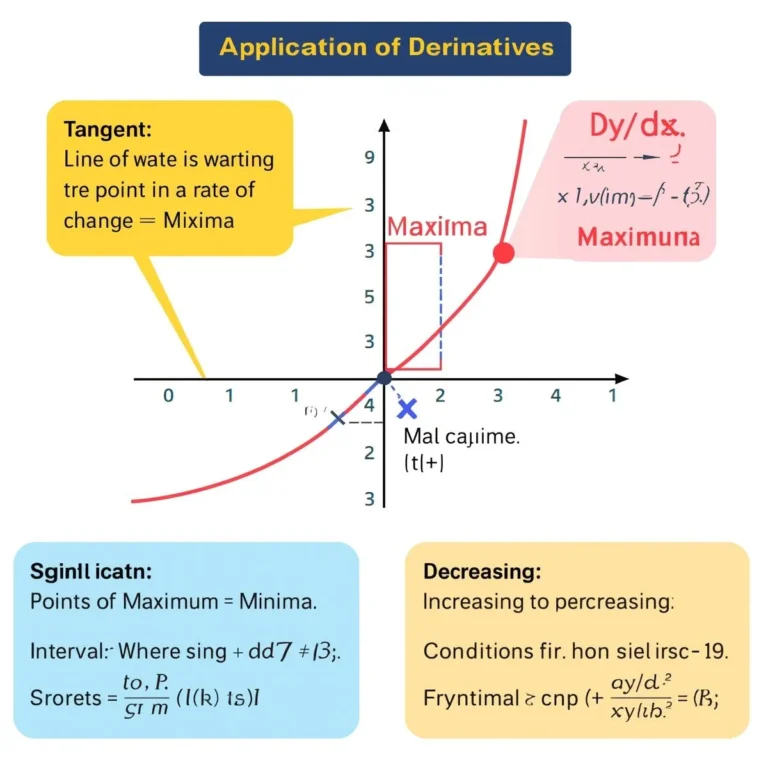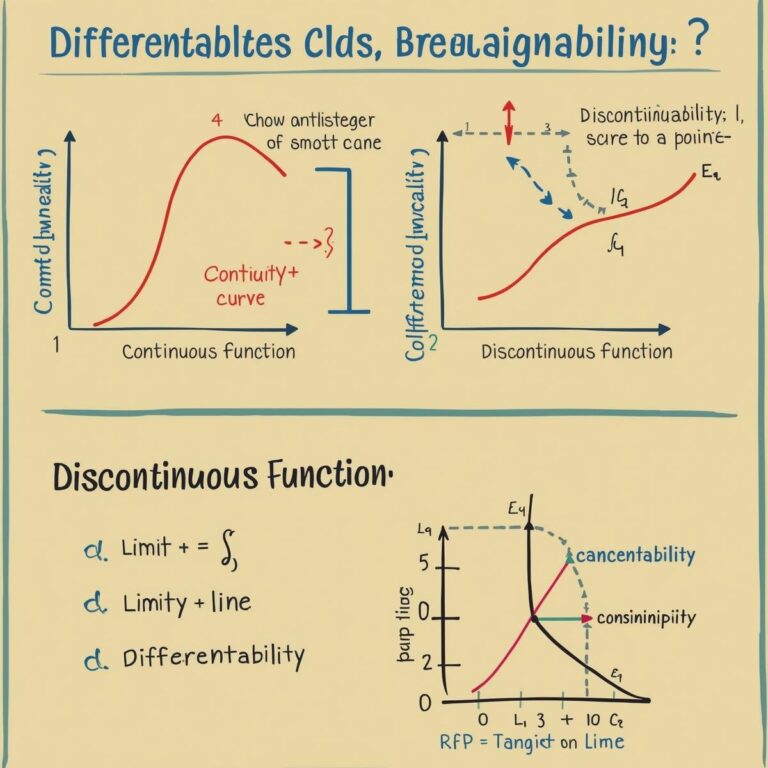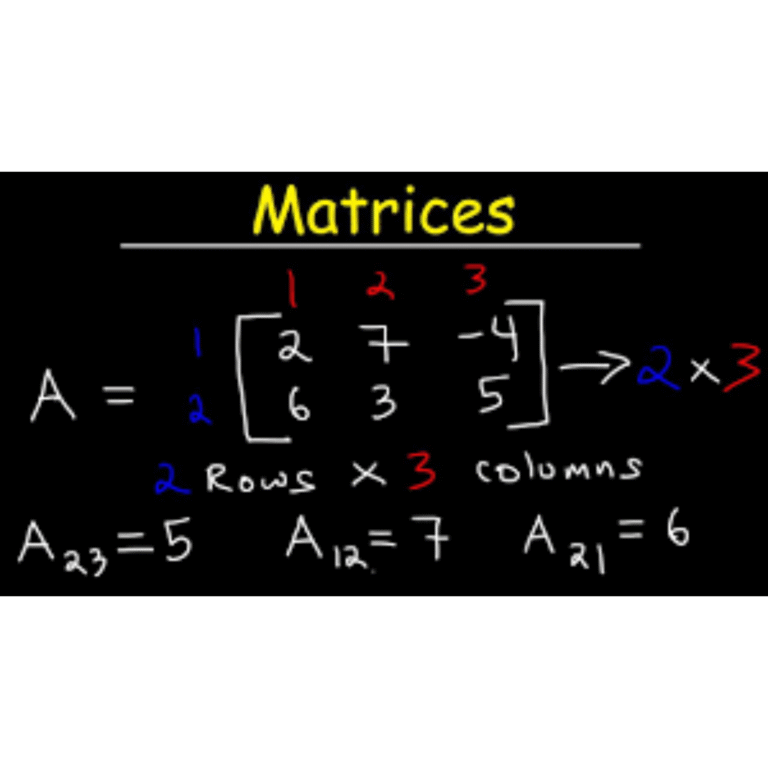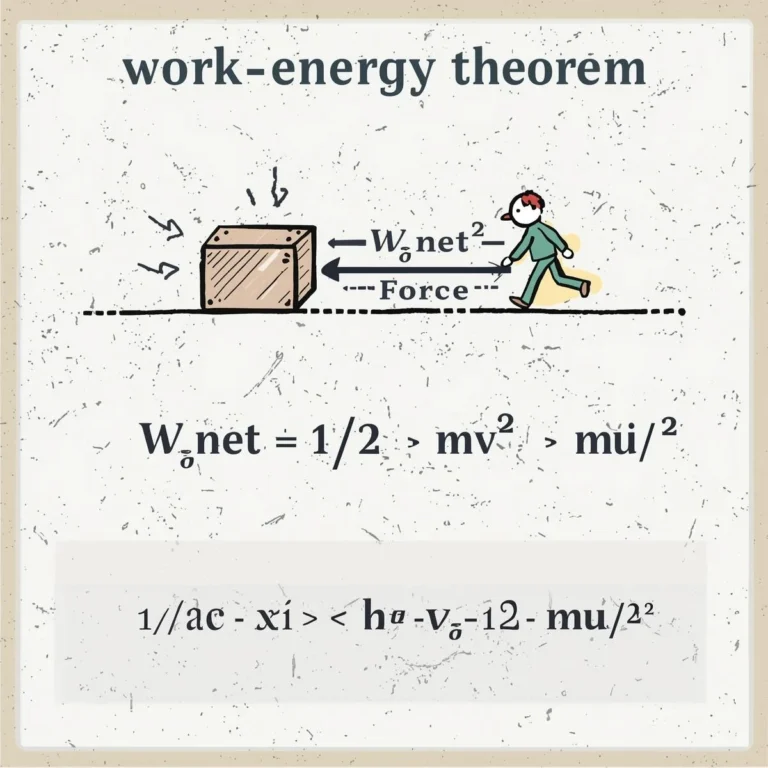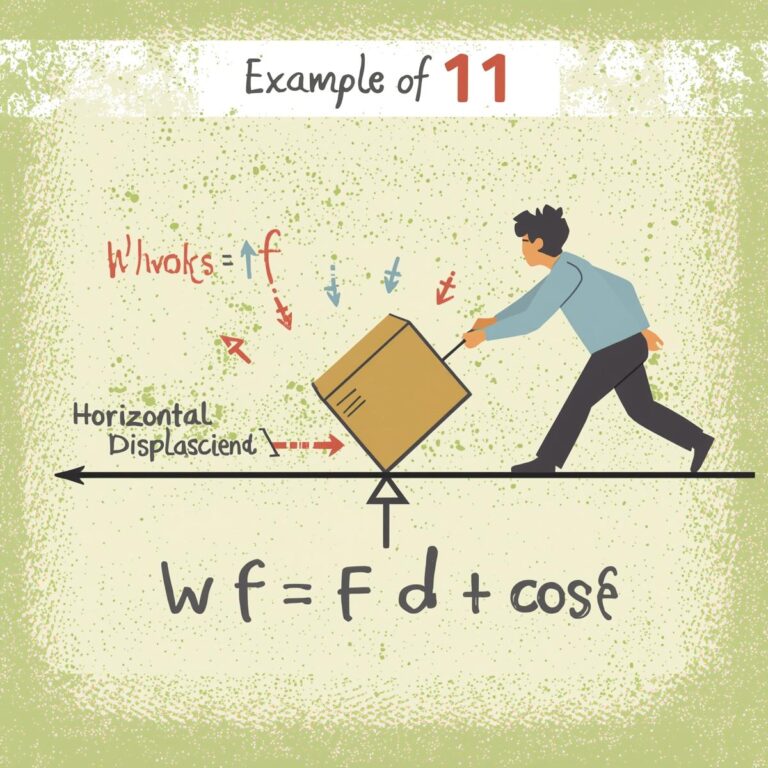Definition
A determinant is a scalar value that can be computed from the elements of a square matrix. It provides important properties about the matrix, such as whether it is invertible, and is used in solving systems of linear equations, finding area/volume, and more.
For a square matrix A, the determinant is denoted as |A| or det(A).
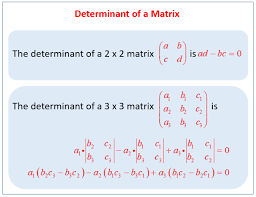
Determinant of a 2 × 2 Matrix
If
A = (\begin{bmatrix} a & b \ c & d \end{bmatrix}),
then
|A| = ad – bc
Example:
Let A = (\begin{bmatrix} 3 & 5 \ 2 & 4 \end{bmatrix})
|A| = (3 × 4) – (5 × 2) = 12 – 10 = 2
Determinant of a 3 × 3 Matrix
If
A = (\begin{bmatrix} a & b & c \ d & e & f \ g & h & i \end{bmatrix}),
then
|A| = a(ei − fh) − b(di − fg) + c(dh − eg)
Example:
Let A = (\begin{bmatrix} 1 & 2 & 3 \ 0 & 4 & 5 \ 1 & 0 & 6 \end{bmatrix})
|A| = 1[(4×6) − (5×0)] − 2[(0×6) − (5×1)] + 3[(0×0) − (4×1)]
= 1[24 − 0] − 2[0 − 5] + 3[0 − 4]
= 24 + 10 − 12
= 22
Properties of Determinants
- |A| = |A^T| (Determinant of a matrix equals the determinant of its transpose)
- If any two rows or columns are identical, |A| = 0
- If a row or column is multiplied by k, the determinant is multiplied by k
- If all elements of a row or column are zero, |A| = 0
- Swapping two rows or columns changes the sign of the determinant
